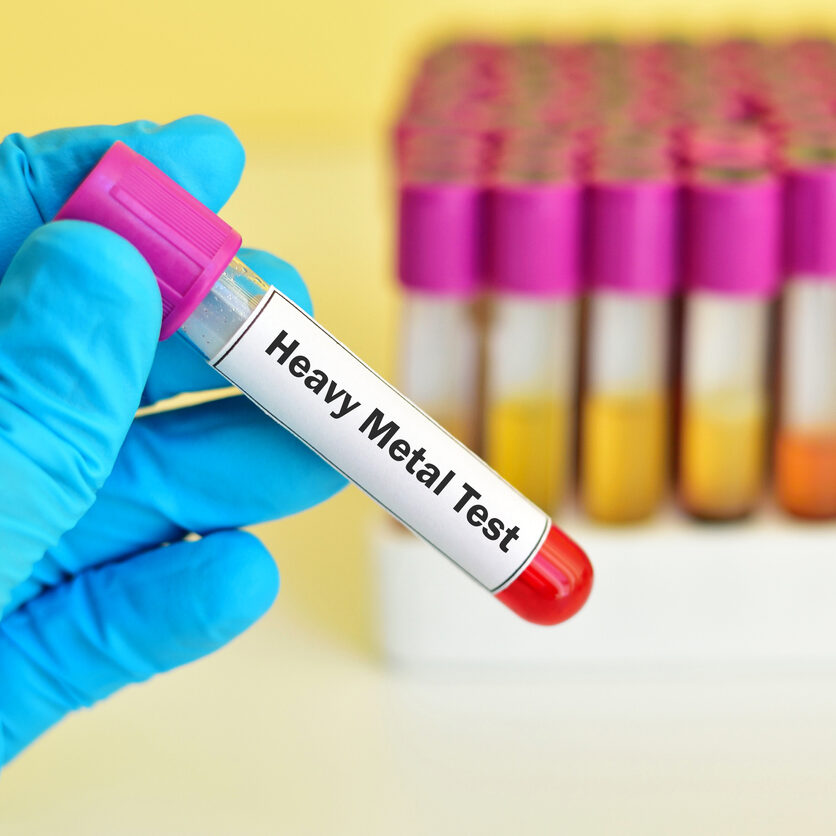Why Test for Heavy Metal Toxicity?
Heavy metals like lead, mercury, arsenic, and cadmium can accumulate in your body over time, with potentially devastating consequences. They are found in various sources, from contaminated water and air to certain foods, and even dental fillings. Heavy metal toxicity can disrupt your body’s natural processes, leading to symptoms such as chronic fatigue, cognitive decline, digestive issues, and more. Heavy metal testing plays a vital role in unveiling unhealthy exposure, and it can be applied in various contexts, including screening, diagnosis, and monitoring for heavy metal poisoning.
Screening
This involves searching for signs of heavy metal poisoning even in the absence of symptoms. It is particularly useful for individuals who may have been exposed to toxic metals in their workplace or for children residing in areas with lead-containing home paint.
Diagnosis
This involves searching for signs of heavy metal poisoning even in the absence of symptoms. It is particularly useful for individuals who may have been exposed to toxic metals in their workplace or for children residing in areas with lead-containing home paint.
Monitoring
This involves searching for signs of heavy metal poisoning even in the absence of symptoms. It is particularly useful for individuals who may have been exposed to toxic metals in their workplace or for children residing in areas with lead-containing home paint.
What Does the Test Measure?
Heavy metals can be assessed individually or as part of a comprehensive panel that examines multiple compounds. Our providers tailor panel tests to specific situations, but our standard heavy metals panel includes analysis for lead, mercury, arsenic, and cadmium.
Additionally, our panel may encompass other metals, such as copper, zinc, chromium, thallium, aluminum, beryllium, cobalt, iron, bismuth, manganese, nickel, silver, selenium, silicon, and platinum.
For each toxic metal within the panel, the test provides precise measurements of their concentrations in the test sample. Most metal levels are quantified in micrograms (μg or mcg) per unit of volume, depending on the type of test sample.


When Should You Consider This Test?
If you are experiencing unexplained symptoms or illness or suspect exposure to heavy metals, heavy metal testing is a crucial step to take. It is imperative to consult with your provider if you fall into either of these categories.
The choice of metals to test for and the selection of the appropriate test sample depend on the nature of your symptoms or potential exposure. Collaborating with your provider ensures that you receive the most suitable testing regimen.
Workplace exposure to toxic metals is subject to regulations overseen by the Occupational Safety and Health Administration (OSHA), a regulatory agency under the United States Department of Labor. OSHA may require testing of employees who may have been exposed to toxic metals at their workplace to safeguard their health and well-being.
How We Utilize This Data to Optimize Your Health
Comprehensive Analysis
We analyze your heavy metal exposure comprehensively, considering factors like diet, environment, and lifestyle.
Personalized Guidance
Based on your test results, our experienced providers craft a customized plan to detoxify your body and support your overall health.
Ongoing Support
We’re with you every step of the way, monitoring your progress, and adjusting as needed to ensure your journey to health is a success.
Don’t let heavy metal toxicity silently compromise your health. Take control of your well-being with Forum Health’s Heavy Metal Toxicity Testing. Don’t wait, explore hidden threats and begin your path to optimal health and contact us today.
